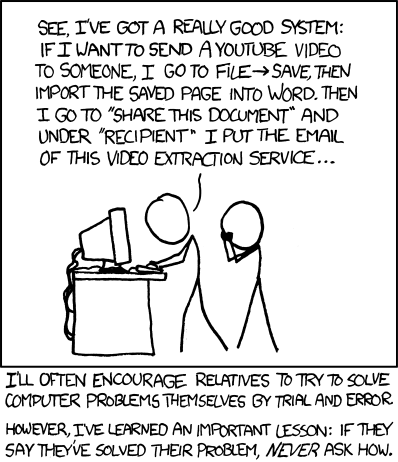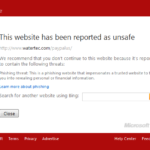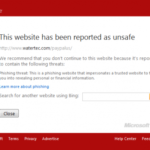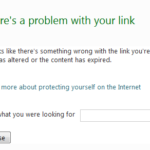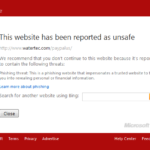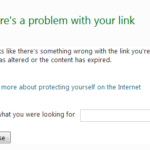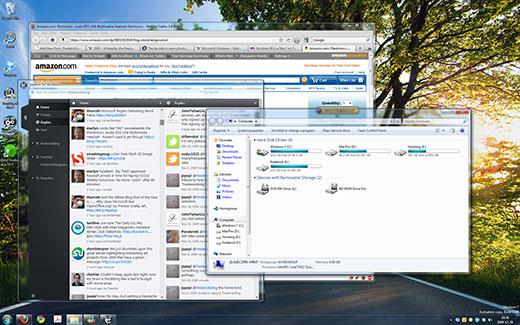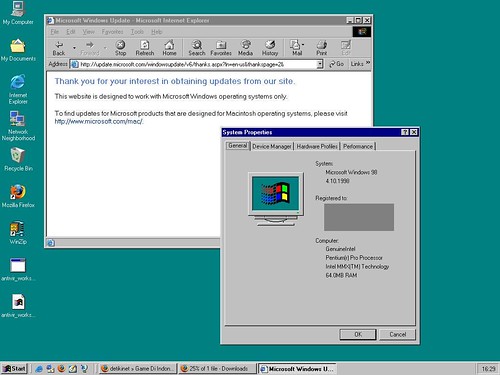Tracking the #thesiswp matter: Part 2
« Read how it all started in Part 1.
Synopsis
While the initial controversy about the Thesis-not-being-under-GPL issue was focused on themes and derivative works, an unclear area that probably needs to be resolved in court, it seems there is a far sounder reason why Thesis has to be released under the GPL: it blatantly copies WordPress code.
It all started with this tweet by Andy Peatling (@apeatling):
Not a clear GPL violation, because it’s extending WordPress classes, which, in effect, copies WordPress functionality into Thesis.
Code analyses
Andrew Nacin (@nacin) started going through the code of Thesis and started to make some encouraging/discouraging tweets:
I just found a line of code I wrote for #WordPress, but in #thesiswp. Funny, when I wrote it, it was under the GPL. #
And then, an initially uncorroborated claim:
This is really pissing me off. I’m up to a few hundred lines directly lifted from WP. A part of me is crushed. #thesiswp #
And then Drew Blas (@drewblas) did an automated analysis (like I suggested :) ) and found clear evidence of copied WordPress code:

Impact
At this point, it seems clear: Thesis isn’t merely building on top of WordPress, it literally incorporates WordPress code through copy-paste.
That makes Chris Pearson liable to fulfill his obligations under the GPL and distribute GPL derivatives under the GPL.
[acm-tag id=”468×60″]
Most damning
Andrew Nacin eventually found this in Thesis:
* This function is mostly copy pasta from WP (wp-includes/media.php), * but with minor alteration to play more nicely with our styling.
GPL test case? YES.
Chris Pearson indicated during his interview that he is fundamentally opposed to the GPL and will absolutely refuse to license Thesis under the GPL. By the end of the dialogue, he was practically saying “sue me”.
Matt Mullenweg responded:
Matt: Are you saying you want to be a test case for the GPL? You want us to sue you? I mean, that would break my heart. I’d rather you be part of the family.
While the themes = derivatives basis might have been shaky for a legal trial, I think the fact that there’s copied code clearly indicates one outcome in the end, in favour of the GPL.
Temporarily back to the case for themes = derivatives
WordPress isn’t the first community to issue the directive that extensions (themes, plugins) are derivatives. Joomla! did so a few years ago (I recall because I used Joomla! before finding WordPress) and Drupal makes it extremely clear.
If this matter can’t be determined by the GPL’s applicability to themes/plugins, maybe WordPress should just re-license, starting with a future version, with GPLv3 and add a specific requirement that themes/plugins are licensed under GPL.
Tracking the #thesiswp matter: Part 1
Twitter erupted into argument last night in a fairly important battle for open source, the GPL, and WordPress. At the centre of the issue is a theme framework called Thesis which plugs into WordPress, sold with a restrictive license that does not permit redistribution.
Background
To provide some background, WordPress is a blogging platform licensed under the GPLv2, which specifically forces all copies of a work licensed under GPL, as well as derivative works, to be licensed under the GPL:
2. You may modify your copy or copies of the Program or any portion of it, thus forming a work based on the Program, and copy and distribute such modifications or work under the terms of Section 1 above, provided that you also meet all of these conditions:
b) You must cause any work that you distribute or publish, that in whole or in part contains or is derived from the Program or any part thereof, to be licensed as a whole at no charge to all third parties under the terms of this License.
The Free Software Foundation explicitly addresses plugins in its FAQ, making it clear that plugins that share data structures with the main program and make function calls to each other are derivative works to which the GPL also applies.
Themes were an uncertain matter prior to last year’s legal opinion from the Software Freedom Law Center, because these works from third parties certainly build on top of the WordPress platform, but often extend it with original artwork and programming. The analysis states clearly that:
… it is our opinion that the themes … contain elements that are derivative works of the WordPress software as well as elements that are potentially separate works. Specifically, the CSS files and material contained in the images directory of the “default” theme are works separate from the WordPress code. On the other hand, the PHP and HTML code that is intermingled with and operated on by PHP the code derives from the WordPress code.
Though almost all of the other theme foundries have adopted the GPL license for their PHP code, Chris Pearson stands nearly alone in asserting the GPL’s viral clause is inapplicable to him.
Initial controversy
On a live webcast with both Chris Pearson, the developer of Thesis, and Matt Mullenweg, the founder of Automattic and the WordPress project, Chris expressed his personal belief that the viral nature of the GPL goes against his personal freedoms and rights as a developer:
Chris: One, it would require me to make a concession about something that I don’t think that I need to concede to. Why should I change? I’m protected right now. My work is protected, which it should naturally be. I want to retain that right. If I go GPL then I am ceding that right. The number one issue for me is the personal concession that I would be making. Not of any real impact to my business. I don’t want to make that personal concession, because I don’t have to. Okay?
Note: it is possible, in terms of the GPL’s legality, that Chris never had the right to prevent users from redistributing his code; if the GPL applies, a developer cannot restrict redistribution.
Matt, on the other hand, debates to defend the applicability of the GPL to themes and plugins:
Matt: … If you build a module for Drupal or a module for WordPress or a theme for WordPress or anything like that, the license says that you do have to follow the GPL. I think that it’s just a matter of choosing the platform. If you disagree with the GPL, just use a platform that doesn’t have the GPL.
I listened to all of the long back-and-forth encounter, which was interesting until Chris began to assert his importance in the community:
Chris: I’ve done great things with WordPress since 2006. I have been arguably one of the top three most important figures in the history of WordPress. You, Mark Jaquith, and myself, are the three people that I am talking about.
Wait, what? A developer whose theme accounts for such a small fraction of WordPress’s usage puts himself in the top three figures in WordPress history? Jane Wells had a similar encounter with his ego.
» See the top 10 figures in WordPress history.
[acm-tag id=”468×60″]
Analysis of this part of the controversy
The crux of the controversy is summarized by Chris’s sentences here:
Chris: I think the license, the GPL, is at odds with how I want to distribute my software and what I want it to be. I don’t think that it necessarily should inherit WordPress’ license when over 99% of the code within Thesis is Thesis code based on the actual process of building a website.
As someone who also contributes to open source software, I can certainly understand his sentiments on the ‘infectious’ nature of the GPL, which forces derivatives to inherit the GPL. It’s pretty hard to release projects under even more permissive licenses (for example, the Apache License), or in Chris’s case, extremely restrictive proprietary licenses, when so many open source projects enforce the GPL.
That really is, though, the purpose of the GPL: to keep open source open by prohibiting its inclusion in fully closed-source or proprietary (and restrictively-distributed) projects.
Are themes derivative works?
A lot of the open source advocates and lawyers seem to think so. After all, themes do things like:
[php]<?php if ( get_comment_pages_count() > 1 && get_option( ‘page_comments’ ) ) : // Are there comments to navigate through? ?>[/php]
and
[php]<?php if ( $wp_query->max_num_pages > 1 ) : ?>[/php]
which show clear integration with WordPress core functionality, much like a program in C would use the MySQL library with
[cpp]mysql_real_connect()[/cpp]
Granted, the MySQL developers explicitly allow derivatives to use non-GPL licenses even though MySQL is GPL, through an additional license exception. The reason such an exception is necessary is that they understood that works which link to library code are derivatives.
The biggest problem is that the GPL was written with compiled code in mind, where derivatives would have to bundle the libraries (e.g. DLLs or SOs) in their releases. It’s sort of unclear for interpreted languages like PHP; is it an indication of derivation if one piece of code makes a function call to another?
It’s a bit unfortunate WordPress wasn’t licensed under GPLv3, because version 3 is much clearer about what it means to make a “modified version” or a work “based on” another work. It would also make for a better court case.
Caleb Jenkins (@CalebJenkins) iterates an interesting point: dependent != derivative. While I can see this being an interesting legal argument, it would have a lot of implications for open source in general, completely contrary to the way things have been operating.
If using a dependency is not being a derivative of that work, then it is conceivable that one can produce a C application which links to a GPL library (for example, the FOSS-licensed version of the MySQL client library) without bundling it and is released commercially under a closed-source, restrictive license. It is conceivable that a PHP program might require() WordPress to use its functionality, but simply not bundle WordPress, and would then avoid classification as a derivative.
I’m afraid I can’t entirely lend my support to that argument.
People have argued that making function calls to WordPress is akin to making system calls to the underlying operating system. Unfortunately, only GPLv3 is clear about distinguishing the system and compiler libraries from other general code; of course it doesn’t make sense that every application on the GPL Linux kernel must be open source. It’s a valid argument.
However, I agree more completely with Matt’s contention that a dependency = derivation when it gets to the point that a WordPress theme without WordPress will not work (just try loading any theme’s index.php in a browser) while WordPress without any themes will still function — it won’t show anything, but its backend is still fully functional.
Chris Pearson is wrong when he says “I think that what I’ve done stands alone outside of WordPress completely.” Interestingly, read the context of this quote:
Chris: How is that? I think that what I’ve done stands alone outside of WordPress completely. Why should I respect that? It’s not that I don’t respect WordPress. I do. I only build on WordPress and push people in its direction…
» Now here: Part 2 of Tracking the #thesiswp matter.
» Also read: Why WordPress Themes are Derivative of WordPress by Mark Jaquith (@markjaquith), a lead developer.
XKCD = hilarious
Windows Live Essentials Wave 4 — Messenger
Happy New Year!
It’s the end of another year and the end of a ground-breaking decade. Let’s look back at what’s been accomplished in the years of 2000–2009, focusing on technology.
Technology
Windows has entered a new era
The decade—indeed, the century—began with Windows 2000, which I consider the first great version of the operating system. XP was the version that brought widespread success, and people just seem to refuse to upgrade; even today, almost three quarters of the computers on the net are on XP.
Despite the dismal failure of Windows Vista, it too brought change, which was followed by the enhancements of Windows 7. Compare my desktop today to the ugly screens of a decade ago:
Apple deserves an honourable mention for the ground-breaking work they’ve done on the Mac, elevating it to a newly trendy status.
Portable media players have completely changed
A decade ago, CD players and tape-based Walkmans were still the norm for ‘portable’ audio players. The iPod, launched in 2001, entirely changed the game. (I suppose this and the iPhone were the “comeback of the decade”.) It was no longer a device that played removable media. That was followed by thousands of other portable media players, to which the public generally refers inaccurately as “MP3 players”, reflecting the popularity of the 15-year-old MP3 format that has also been notorious for illegal file sharing (see below).
Cell phones and mobile devices have become ubiquitous

In China, about 739 million people have cell phones; that’s more than there are Internet users in China (which is about 360 million).
Mobile devices have become truly powerful. The iPhone, purportedly the most popular cell phone of 2009, is one of the biggest platforms for software development. And it has a touch screen. RIM’s BlackBerry, initially launched in 1999, is the most popular smartphone among business users.
Ordinary people begin to embrace ultra-portable netbooks for lightweight computing. The move to mobile is probably the most noticeable trend in end-user gadgetry in this decade.
Continue reading “Happy New Year!”
4 online document hosting services
Over a year ago, I compared two online services designed specifically for PowerPoint slideshows. Today, I want to review 4 free online document hosting services that take your document files and convert them to a format that can be embedded and shared on the Internet.
I’ll be giving scores based on these factors:
- Web site design / usability
- Compatibility
- Converted appearance
- Embeds
In case you’re wondering, these 4 document publishing services are Docstoc, edocr, Issuu and Scribd. Of these, Scribd and Docstoc are likely the best known and the best established.
I should give a warning for those on low bandwidth connections: this is a screenshot/media-heavy post.
Continue reading “4 online document hosting services”
What a scam: Domain Registry of Canada
I’ve been receiving these letters every single year a few months before any one of my domains is set to expire.
This company is clearly harvesting WHOIS data in violation of their ICANN agreement to send official-looking “expiration notices” to domain owners, many of whom unwittingly send in payment, unaware that the “Domain Registry of Canada” is merely a company attempting the entirely unethical practice of domain slamming.
Since 2001, this company has been soliciting domain transfers under the guise of renewing the registration with the existing registrar. Of course, their prices are ridiculously expensive — $40 per year for a domain name — and that’s part of why I didn’t fall for it, since I operate my own domain registrar and I know the value of domain registration services aren’t that high.
An early example of the domain letters from 2002 is published online.
In 2003, the Federal Trade Commission settled with the sister company “Domain Registry of America” to stop their misleading business practices. The way they decided to comply was by adding a little blurb that blended into the text, one that few people seeing an official-looking letter would read.
They’ve changed it a bit now, to uppercase and bold text, but the premise of their operations is still the same.

The envelope is misleading. Indeed, the colour and layout of the envelope nearly exactly matches that of an official Canadian government letter, except for the return address in the top-left. And there they’ve neatly placed a maple leaf, knowing that it is associated with the country, and by extension, the government.
Even the NAME is misleading.
The letter has been changed in recent years, but still carries the same layout that I recognize from as early as 2005. The prices are ridiculous; a .net domain isn’t worth $40/year. (I know; I was selling them for $7.99 last month.)

That letter just irritates me. Sentences like “take advantage of our best savings” when you actually pay $30 more, misleading phrases like “You must renew your domain name to retain exclusive rights”, and worst of all:
“Failure to renew your domain name by the expiration date may result in a loss of your online identity making it difficult for your customers and friends to locate you on the Web.”
It’s rare for me to be this angry. But it’s a ripoff.


